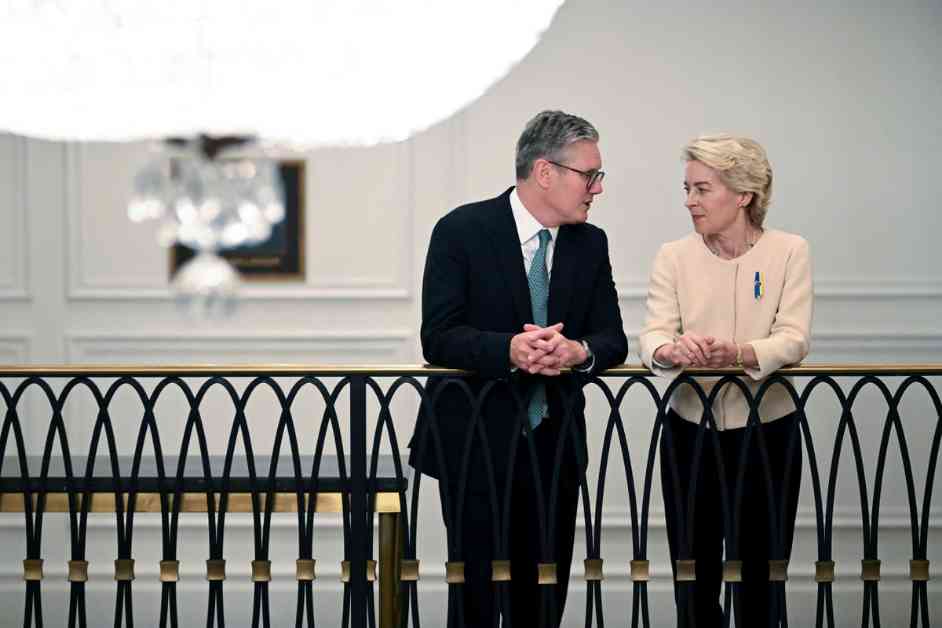Brexit Reset Strategy: Youth Mobility as Negotiating Chip
As the UK navigates its post-Brexit relationship with the European Union, the youth mobility scheme has emerged as a key negotiating point for the Labour government under Sir Keir Starmer. With talks set to begin in Brussels next week, the government is treading carefully to ensure a successful reset of its relationship with the EU.
Labour’s Three Pillar Blueprint
European affairs minister Nick Thomas-Symonds is leading the main talks with the EU, focusing on a “three pillar” strategy to reset the relationship. The pillars include defense and security, safety, and trade. The defense strategy aims to revive the Lancaster House defense pact with France, establish a new deal with Germany, and collaborate on a EU-UK security pact in partnership with NATO.
In terms of safety, the government is looking at shared data and cooperation in tackling crime, particularly organized gangs involved in human trafficking and irregular immigration. The trade pillar, which is third on the list, poses the toughest challenge for the government. Concerns have already arisen over the Border Target Operating Model and digital border checks for fresh goods due to lengthy check times.
Youth Mobility Scheme
The youth mobility scheme has been a focal point for those advocating for a more ambitious EU relationship reset under Sir Keir Starmer. While there is widespread support for the scheme in Brussels and European capitals, particularly Berlin, the government is cautious about committing too soon.
EU ambassador to the UK, Pedro Serrano, has expressed optimism about reaching an agreement on the youth mobility scheme, suggesting it could cover areas like gap years for under-30s. However, there are differing opinions on the scope of the scheme, with some advocating for broader mobility options beyond student exchanges like Erasmus+.
Nick Thomas-Symonds is taking a careful approach to the negotiations, aiming to leverage the positive atmosphere following the change in government. He believes that a pragmatic attitude from both sides could lead to mutually beneficial agreements in areas like youth mobility.
Challenges and Opportunities
While the talks with the EU are expected to be difficult, there is optimism about finding common ground on issues like defense and security, safety, and trade. The UK’s willingness to align regulations dynamically with the EU signals a potential avenue for progress in the negotiations.
The EU’s dissatisfaction with the agreement made with David Frost and Boris Johnson presents an opportunity for the UK to push for changes that better suit both parties. By adopting a pragmatic approach and focusing on areas of shared interest, the UK government hopes to make significant headway in its reset strategy with the EU.
In conclusion, the youth mobility scheme serves as a bargaining chip in the broader Brexit reset strategy being pursued by the Labour government. By carefully navigating the negotiations with the EU and emphasizing areas of mutual benefit, there is potential for a successful realignment of the UK’s relationship with its European neighbors.












